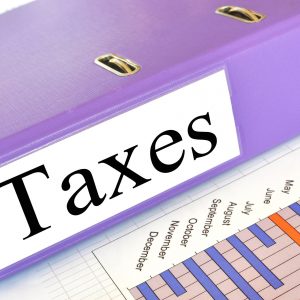
Last night the Italian government announced it was introducing a one-off 40 per cent tax on banking profits which are the result of higher interest rates.
Banks in Italy have come under fire for profiting from growing interest rates, which have not necessarily been passed on to savers.
For example, Intesa Sanpaolo, a large bank in Italy, said that it was on course to make more than €13.5bn from its net interest margin (NIM).
As a result, the Italian government has confirmed that NIMs will be subject to a 40 per cent tax rate for this year. According to reports, the government expects to bring in around €3bn from the measure.
Matteo Salvini, deputy prime minister, pointed to the large gap between the rates applied to loans and deposits, as well as the fact that profits for the first half of the year are in the billions rather than millions.
The share prices of Italy’s banking firms plunged “particularly sharply” following the announcement of the measure, noted Victoria Scholar, head of investment at interactive investor.
She added: “Banks have enjoyed a major tailwind from rising interest rates with the government looking to redistribute those earnings toward those who are struggling with expensive mortgage payments.”
Could a banking windfall tax be introduced in the UK?
A host of other countries in Europe have introduced windfall taxes on banks in recent months, including the likes of Spain, Lithuania and Hungary.
But should we see a similar measure in the UK?
Graham Cox, founder of SelfEmployedMortgageHub.com, said that a windfall tax was a “tempting option” given taxpayers bailed out the banks in the financial crash.
“However, the law of unintended consequences would soon come into play, as helping borrowers would maintain house prices at their artificial highs. First-time buyers would continue to need massive deposits, beyond the reach of many. Lower house prices would be far more beneficial overall,” he concluded.
A windfall tax is something that many banks will be concerned about, suggested Scott Taylor-Barr, financial adviser at Barnsdale Financial Management, particularly if it looks likely that they will be posting record-breaking profits in their own financial results.
He continued: “The government will be under huge pressure from the opposition and the public to do something similar if struggling households wake up to hear that HSBC, Barclays, Lloyds, NatWest, etc have recorded multi-billion pound profits off the back of all their struggles and suffering.”
Taylor-Barr cautioned that one way for for banks to get around this would be by being overly cautious in the amount of money they provision in their accounts to cover bad debts.
This would allow the banks to avoid “the public backlash of posting record-breaking profits, then revisit the amount provisioned in later years to release profits back to shareholders once the glare of the spotlight is no longer on them,” he suggested.
















